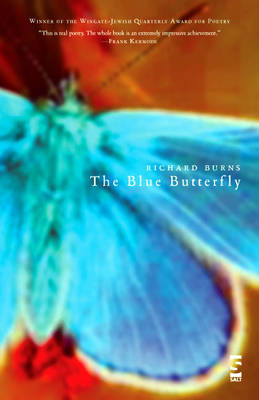Salt Modern Poets
5 total works
Written during and after the disintegration of Yugoslavia, this book presents a complex vision of the Balkans that flinches from neither brutality nor beauty but honours dignity and courage. The book starts with a tour-de-force, the long poem `Do vidjenje Danitse' (`Goodbye Balkan Belle'), and continues with a series of memorial tablets for victims of Jasenovac concentration camp. The book includes a sequence in memory of the Serbian, Yugoslav and Mediterranean poet, Ivan V. Lalic.
Under Balkan Light forms the final part of Richard Berengarten's Balkan Trilogy and is published together with the first two parts, The Blue Butterfly and In a Time of Drought. It is also the fifth volume in the Salt series of his Selected Writings.
Richard Berengarten used to be known as Richard Burns. With the publication of this book, he now repossesses the family name of his father, the cellist and saxophonist Alexander Berengarten.
Set in the crumbling ruins of Yugoslavia, In a Time of Drought explores the images and realities of war, destruction and dictatorship, and of fertility, nurture and peace. The key figure is the Balkan rain maiden. This gypsy or peasant girl takes on an ancient mythological authority and a wholly modern moral presence. In the wake of waste and war she is the incarnation of hope and renewal.
In a Time of Drought has received the international Morava Charter Award. It forms the second part of Richard Berengarten's Balkan Trilogy and is published together with the other two parts, The Blue Butterfly and Under Balkan Light. This edition is also the fourth volume in the Salt series of his Selected Writings.
Richard Berengarten used to be known as Richard Burns. With the publication of this book, he now repossesses the family name of his father, the cellist and saxophonist Alexander Berengarten.
The Blue Butterfly has two points of departure. The first is a Nazi massacre in former Yugoslavia. On 21 October 1941, seven thousand men and boys from Kragujevac, a town in central Serbia, were marched out to the nearby hills and gunned down. The poet Richard Berengarten visited the site of this atrocity, on 25 May 1985. As he was queuing to enter the memorial museum, a blue butterfly descended onto the forefinger of his writing hand. This extraordinary and powerful book takes off from these two episodes. The title poem is already famous in former Yugoslavia in the translation by Danilo Kiš and Ivan V. Lalić. In Serbia, Berengarten has recently been honoured with the international Morava Prize for Poetry. In the UK, an early unpublished draft of this sequence was awarded the Wingate-Jewish Quarterly Prize in 1992. The Blue Butterfly unflinchingly explores both revenge and forgiveness, expanding from the Balkan historical context to the present time. The complete book has been a long time in the making. Because it examines profound and important issues, because it does not flinch from asking large questions, because it shapes a crafted, vital, living poetry out of suffering and tragedy, and because it insists on hope and pleads for joy, this is a book which has moral implications on many levels. Both passionate and thoughtful, demanding and rewarding, it is European in context and universal in scope and relevance.
The Blue Butterfly has received the Great School Lesson Award in Serbia. An early version won the Wingate-Jewish Quarterly Award in the UK. It forms the first part of his Balkan Trilogy and is published together with the other two parts, In a Time of Drought and Under Balkan Light. This edition is also the third volume in the Salt series of his Selected Writings.
Richard Berengarten used to be known as Richard Burns. With the publication of this book, he now repossesses the family name of his father, the cellist and saxophonist Alexander Berengarten.



